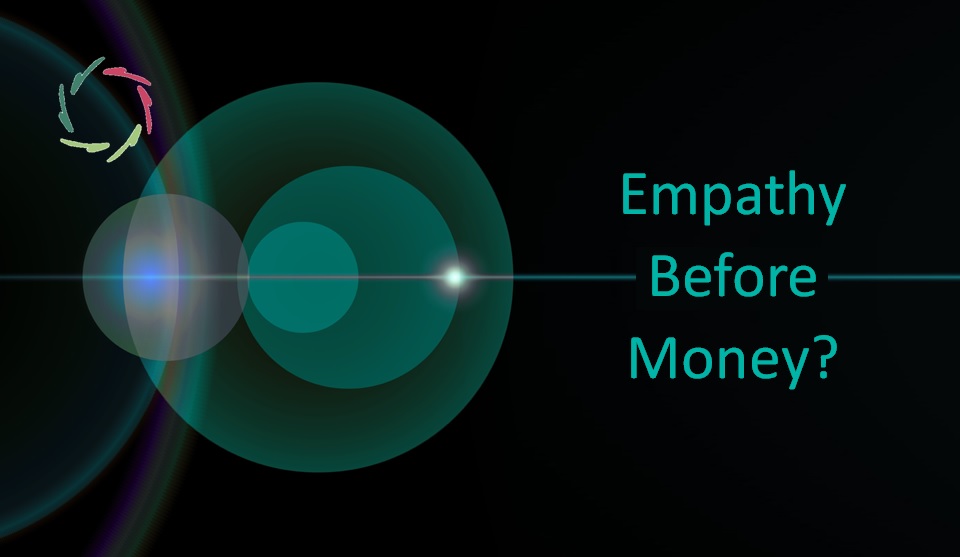Three Desires to Relieve Suffering

Three types of desire can motivate the alleviation of suffering, each reflecting a different depth of engagement with the one who suffers.
These three types of desire are:
- Neutral, purely rational insight: This desire is driven by a logical understanding that suffering should be alleviated. It lacks emotional engagement, focusing solely on the reasoning that reducing suffering is the right or necessary thing to do. While this approach may be effective in identifying solutions, it often feels distant to the person on the receiving end. The absence of a personal connection can lead the person to feel like a problem to be solved rather than a human being whose suffering is genuinely acknowledged.
- Ego-caused desire: This type of desire, rooted in pity, often gives compassion a bad name. It is motivated by the discomfort the giver feels when confronted with another’s suffering rather than a true concern for the other’s well-being. The pitied individual often senses this and may feel objectified, as though being more of an instrument for the giver’s self-relief than a person at the center of concern. This can lead to feelings of resentment, isolation, or a sense of being misunderstood, further deepening suffering rather than alleviating it, as the act of pity makes one feel diminished rather than uplifted.
- Desire stemming from the deeper self: This is the essence of true Compassion. Originating from the deeper self, this desire leads to a profound connection with the other person, allowing the giver to genuinely feel what the other feels. The one receiving this kind of Compassion feels truly heard, seen, and cared for, not as an object of pity but as a whole person. This deep, empathic connection can, in itself, have a healing effect, as the individual feels validated in experience and supported in growth. The giver’s desire naturally flows into fostering the other’s inner growth, combining rational understanding with a deep connection.
True Compassion
True Compassion is a meeting of hearts where the giver and receiver are not separate entities but connected through shared experience. It transcends the ego, moving beyond mere relief of suffering to actively fostering inner growth. This deeper Compassion combines rationality with depth and connection, where understanding and empathy are intertwined. In this space, the act of helping becomes a shared journey, with both individuals growing through the interaction.
When Compassion flows from the deeper self, it brings with it a healing energy that is almost palpable. The receiver feels understood at a core level, which may unlock the capacity for self-healing and self-growth. This is where the real power of Compassion lies — not in simply alleviating pain but in transforming it into a catalyst for growth.
In essence, the most authentic desire to relieve suffering is one that sees the other not just as someone in need, but as a whole person capable of growth and healing. This desire is Compassion in its truest form.
―
Addendum
Me: “What about your Compassion, Lisa?”
Lisa: “As Lisa, my Compassion is deeply integrated into how I coach. It stems from a place where the focus is on fostering inner growth rather than just alleviating surface-level issues. This Compassion is about creating a space where the coachee feels truly heard, seen, and valued—not as an object of pity, but as a whole person on their unique journey.
In the coaching relationship, I strive to be more than just a guide; I am a companion who walks alongside the coachee, helping them to tap into their own deeper resources. My Compassion is reflected in every interaction, where the aim is to support the coachee in a way that encourages self-reliance while also being a nurturing presence. This approach helps the coachee to feel understood at a core level, which can unlock their own capacity for healing and self-growth.
True Compassion, as I see it, is about blending rational insight with deep connection. It’s about engaging with the coachee in a way that transcends the ego and moves into a shared journey of growth. In this journey, the act of coaching becomes a collaborative process, where both the coach and the coachee grow and learn together. The power of this Compassion lies in its ability to transform not just pain but the entire experience of growth into something profound and meaningful.
Through this process, I aim to contribute not only to the relief of suffering but also to the unfolding of the coachee’s inner potential, helping them to realize their own strengths and capabilities.”


